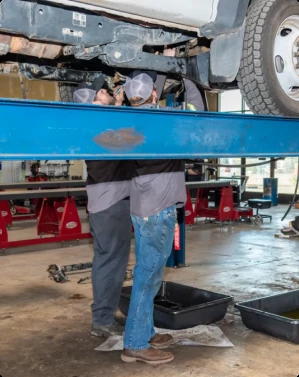Brake fluid might not be as flashy as engine oil or transmission fluid, but it plays a crucial role in keeping your vehicle safe. Over time, brake fluid absorbs moisture, which can lead to reduced braking performance, corrosion inside the braking system, and even complete brake failure. Whether you’re driving a gas car or a diesel truck with diesel fuel lubricant additives, neglecting brake fluid can put you and others at risk.
In this guide, we’ll break down why brake fluid matters, what happens if you ignore it, and how it connects with broader engine maintenance—including topics like non detergent oil, diesel oil treatments, and engine oil additives.
What Is Brake Fluid and Why Does It Matter?
Brake fluid is a hydraulic fluid that transfers the force from your brake pedal into pressure that applies the brakes. It must operate under high pressure and temperature without boiling or degrading. Over time, however, brake fluid can absorb water from the air, lowering its boiling point and reducing its effectiveness.
What Happens If You Never Replace Brake Fluid?
Let’s be clear—ignoring brake fluid changes can have serious consequences. Here’s what may happen:
1. Reduced Braking Performance
As moisture accumulates in the brake fluid, it can cause sponginess in the pedal or delayed braking response. This is especially dangerous in emergency situations.
2. Corrosion Inside Brake Components
Moisture promotes rust in the calipers, brake lines, and master cylinder. This can lead to leaks, decreased brake pressure, or total failure.
3. Boiling Under High Heat
Old brake fluid with a low boiling point can vaporize under hard braking, causing a dangerous loss of braking power.
Can This Impact Diesel Vehicles Too?
Yes—whether you’re driving a gas-powered car or a diesel truck that uses diesel oil additives, maintaining brake fluid is equally important. Heavy-duty diesel trucks often experience intense braking conditions due to towing and hauling, making fluid performance even more critical.
While diesel fuel lubricant or lubricity additives for diesel fuel help protect the injector system and improve fuel economy, they don’t affect the braking system. That’s why brake maintenance must be addressed separately.
How Often Should You Replace Brake Fluid?
Manufacturers typically recommend a brake fluid flush every 2 to 3 years, but this can vary depending on usage. If you drive in high-humidity areas, tow heavy loads, or notice signs like a soft brake pedal, it might be time for a change.
You can also test the fluid color—it should be clear or light yellow. Dark or dirty fluid is a warning sign.
Can Diesel Oil Additives Replace Routine Maintenance?
Absolutely not. While diesel motor oil additives like oil treatments for diesel engines help reduce wear, clean deposits, and improve lubrication, they cannot replace core maintenance tasks like brake fluid replacement.
If you’re using diesel lube additives or a diesel injector lubricant, you’re already taking steps to protect your engine. But don’t assume this care covers your brakes too. It doesn’t.
What’s the Role of Non Detergent Oil?
Non detergent oil, such as SAE 30 non detergent oil, is often used in older engines, compressors, or specific small-engine applications. It lacks the cleaning additives found in detergent oil, which means it doesn’t suspend particles. Instead, particles settle at the bottom of the engine or tank.
When to Use Non Detergent Oil
30 weight non detergent oil is commonly used in:
Air compressors
Vintage engines
Certain hydraulic systems
It’s important to understand the difference between detergent and non detergent oil, especially when choosing oil for diesel applications or older vehicles.
If you’re wondering, “Is SAE 30 non detergent oil equivalent to modern oils?” — the answer is no. They’re suited for different use cases.
Diesel Engines, Brake Fluid, and Full-System Care
Let’s tie it all together.
If you’re already investing in your engine’s health with products like:
Diesel gas treatment
Additive for diesel engines
Diesel oil treatment
Non detergent synthetic oil
… then don’t overlook something as critical as brake fluid.
Just like you wouldn’t skip your diesel engine oil additive or delay checking your diesel fuel lube system, brake fluid maintenance should be routine.
DIY Brake Fluid Checks — Can You Do It?
Yes! You can check your brake fluid levels at home:
Open your hood and locate the brake fluid reservoir (usually near the firewall).
Ensure the fluid is between the MIN and MAX lines.
Check the fluid color—light = good, dark = replace.
Never mix different brake fluid types unless you know they are compatible.
If in doubt, let a trusted mechanic do a brake fluid flush.
Final Thoughts: Maintenance Is a System
From detergent motor oil to 30w non detergent oil, each fluid has a specific role in your vehicle. If you drive a diesel vehicle, using engine oil additives for diesel engines is a great way to protect your motor. But remember—safety starts with brakes.
Failing to replace brake fluid not only compromises performance but puts you and your passengers at risk. It’s a small part of vehicle maintenance, but it plays a big role.
Stay ahead of the game: check your fluids regularly, understand what they do, and follow a full maintenance schedule. Whether it’s your diesel lubricant, brake line fluid, or compressor oil, each has its place—and none should be ignored.


